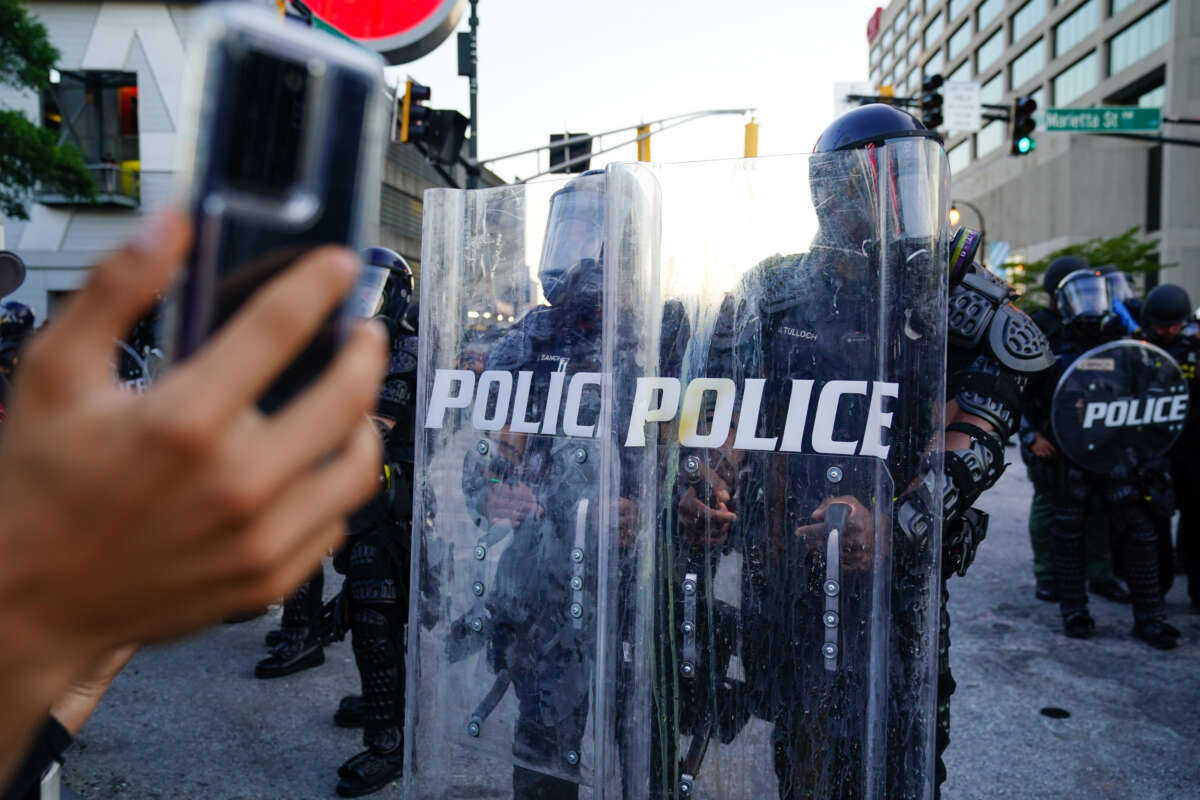Truthout is a vital news source and a living history of political struggle. If you think our work is valuable, support us with a donation of any size.
A panel of federal judges has ruled that municipalities cannot restrict people from livestreaming their interactions with law enforcement, stating that doing so is a violation of their First Amendment speech rights.
But the Fourth District Circuit Court of Appeals ruling, which was handed down earlier this week, is not a total win for the man who sued a town and its police officers over their attempts to confiscate his phone and threats to arrest him during a traffic stop in 2018.
When Dijon Sharpe was pulled over by police officers in Winterville, North Carolina, he used his cell phone to publish the interaction on Facebook Live. The officers told Sharpe that he could record their interaction but not livestream it, claiming that such a move would threaten their safety.
The court rejected that reasoning, with Judge Julius Richardson, who wrote the opinion for the case, stating that the township “failed to establish that the alleged livestreaming policy is sufficiently grounded in, and tailored to, strong governmental interests to survive First Amendment scrutiny.”
The municipal code doesn’t explicitly state that officers can order people not to livestream them. When Sharpe asked during the traffic stop what policy allowed officers to arrest him for broadcasting the interaction, the officers cited a state statute, commonly known as RDO, that prohibits “resisting, delaying or obstructing” law enforcement.
Sharpe claimed in his lawsuit that an unwritten policy, based on that interpretation of RDO, exists in practice in the town, and that it is a violation of people’s rights to forbid them from livestreaming law enforcement.
Though the judges of the Fourth Circuit Court agreed, their ruling will likely make it difficult for Sharpe to proceed with his lawsuit.
The judges stated that the lawsuit could move forward against the city but not against the officers that violated his rights, citing “qualified immunity,” a policy that has consistently empowered officers to engage in unlawful and violent conduct without consequences.
Legal experts have condemned that aspect of the ruling.
“You have a First Amendment right to livestream the police during a traffic stop, but not to sue them for trying to interfere with that right, says the Fourth Circuit Court of Appeals,” civil rights lawyer Keegan Stephan wrote on Twitter.
The judges also ruled that should Sharpe choose to move forward with the lawsuit, the burden of proving that Winterville Township had the policy in place would be on him.
Sharpe celebrated the ruling, but said he disagreed with the stipulation that barred him from suing the officers involved in the traffic stop. The ruling also wasn’t definitive enough to establish a clear precedent barring officers from seizing phones for livestreaming in the future, he said.
“What I was looking to do was looking to get it signed, sealed, delivered, black and white, so that we really could have that as a textbook law,” Sharpe said, according to The Washington Post. “We won the battle, but the war is still going on.”
A terrifying moment. We appeal for your support.
In the last weeks, we have witnessed an authoritarian assault on communities in Minnesota and across the nation.
The need for truthful, grassroots reporting is urgent at this cataclysmic historical moment. Yet, Trump-aligned billionaires and other allies have taken over many legacy media outlets — the culmination of a decades-long campaign to place control of the narrative into the hands of the political right.
We refuse to let Trump’s blatant propaganda machine go unchecked. Untethered to corporate ownership or advertisers, Truthout remains fearless in our reporting and our determination to use journalism as a tool for justice.
But we need your help just to fund our basic expenses. Over 80 percent of Truthout’s funding comes from small individual donations from our community of readers, and over a third of our total budget is supported by recurring monthly donors.
Truthout has launched a fundraiser to add 500 new monthly donors in the next 9 days. Whether you can make a small monthly donation or a larger one-time gift, Truthout only works with your support.
